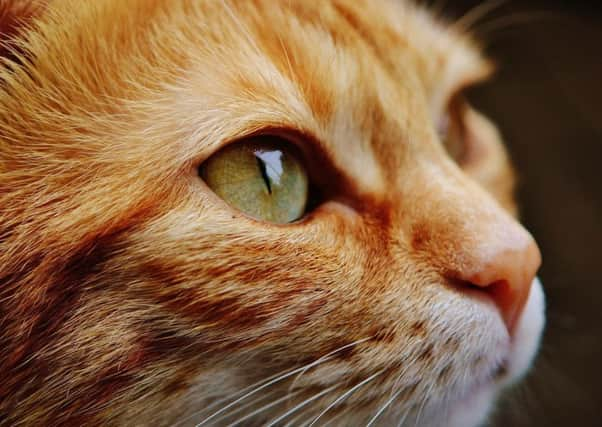Animal scientist explains how important cats are to humans


They’re our companions and the world’s most popular pet - yet the author of a recent book, Cat Wars, argues that felines should be culled or confined indoors to protect wildlife.
Animal scientist Catherine Douglas, who is based at the University of Newcastle, has sprung to cats’ defence, however, pointing out the numerous benefits they’ve given humans throughout history.
Advertisement
Hide AdAdvertisement
Hide AdFirst there are the health advantages of animal ownership. Charity Cats Protection had released its own findings from studies into the companionship of cats, and believes their presence can reduce allergies and school absences in children, improve mental health, aid diabetes control, promote independent living for the elderly and even help rehabilitate offenders.
Even the most well-known nurse in history, Florence Nightingale, recognised the role animals could play in recovery, and research has found that pet owners make up to 20 per cent fewer visits to their GP.
For those at risk of dementia, felines can add stimulation and enhance cognitive, language and motor skills. They can also teach children to be more compassionate.
Cats haven’t always held such a place in our hearts - in the Middle Ages they were persecuted for their association with witchcraft, but the age of sea exploration saw a change in the way we viewed them. Cats were taken on board ships as pest controllers, and kept at bay the rodents which could chew through ropes and decimate much-needed food supplies on long voyages.
Advertisement
Hide AdAdvertisement
Hide AdDouglas even believes cats could become more studied than dogs in future, despite the domesticity canines have enjoyed since prehistoric times.
“From keeping us sane and healthy to protecting foodstuffs from vermin and people from plague, cats have done lots for us. What have we ever done for cats? We should repay their companionship with high-welfare cat-friendly environments and careful breeding – avoiding for example, breeds like the Scottish fold that appeal to our sense of cuteness but live unhealthy and painful lives. Even if you don’t, personally, like cats, consider the overall benefits they confer to society,” she said.